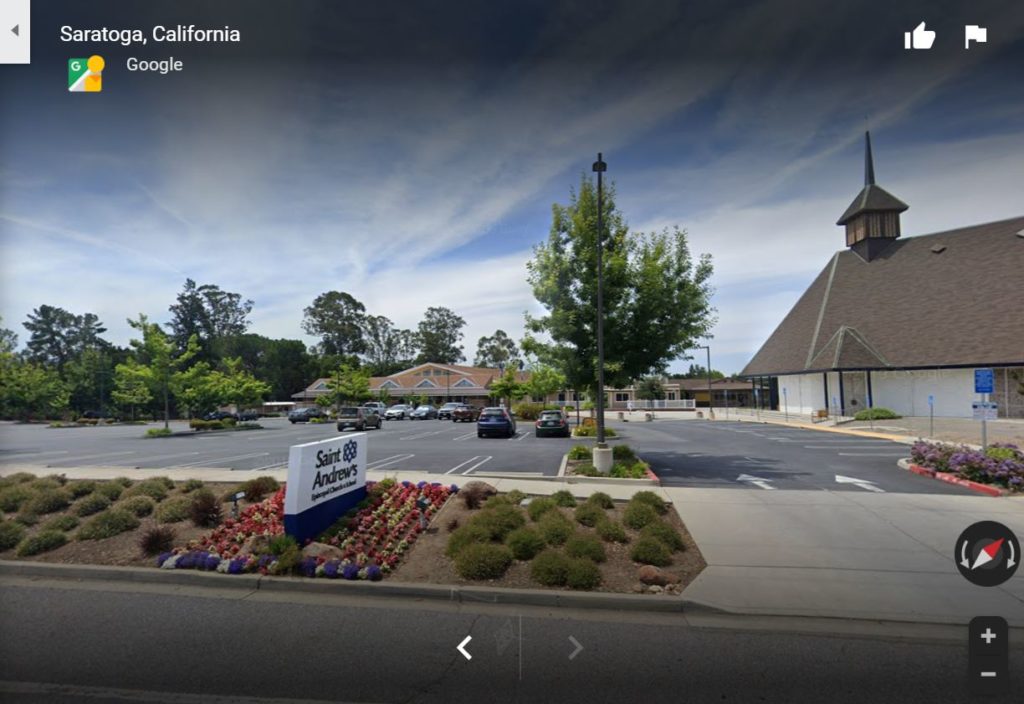Prince of Peace Lutheran, St. Andrew’s Episcopal and Sacred Heart Catholic are some of the partners in Rotating Safe Car Park in Saratoga, California.
The idea for the Rotating Safe Car Park at Prince of Peace emerged in 2017. The church, which is predominantly white and affluent and has a median age of about 55, had been participating in a rotating winter shelter, taking turns with other faith communities to host homeless men in their fellowship halls for a few months of the year. When the program shut down two years ago, the church formed a task force to find a new way to serve. Members of the task force came across safe car parks, which have been hosted by faith communities up and down the West Coast, and were immediately drawn to the idea. They wanted to continue providing shelter to the homeless, instead of providing one-off services such as cooking meals or donating clothing, but they also knew that building affordable housing or a permanent shelter was beyond their capabilities.
…
The City of Saratoga gave the Rotating Safe Car Park a modest amount of funding and let the program proceed with a six-month pilot. The probationary period went by without incident, and the program became permanent. Now the Rotating Safe Car Park has 17 partners: 11 houses of worship and one community college that provide lots, volunteers, meals, and other forms of assistance, and five support partners, including the city, social service agencies, the sheriff, and a local YMCA that allows guests to use its showers. Puck attributes the program’s continued success to this community backing.
Some congregations were fearful of bringing a dozen homeless people onto church property at night and were reluctant to get on board. Jani Wild, a priest at St. Andrew’s Episcopal Church, a partner that hosted the program in July, said her church’s governing board and congregation initially expressed concern.
“It’s hard to get people to realize they need to love their neighbors no matter who their neighbors are,” she said. “The biggest thing was understanding who the guests were. There’s worry about the other person. There’s worry that they’re going to be disruptive, they’re going to be messy, they’re going to smell, and the facilities will get trashed. None of that happened, and none of that has happened at any of the churches.”

